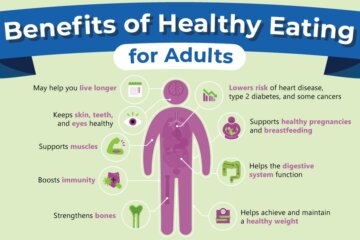How to Stay Physically Active: Regular daily physical activity has a profound impact on health. It can improve both body and mind.
Imagine feeling more energetic, happier, and healthier every day. Being physically active daily offers these benefits and more. Exercise helps maintain a healthy weight, strengthens muscles, and improves heart health. It also boosts mental health by reducing stress and anxiety.
A consistent exercise routine can lead to better sleep and increased focus. Regular activity can lower the risk of chronic diseases like diabetes and hypertension. Embracing a daily exercise habit can lead to a longer, healthier life. So, let’s explore how daily physical activity can transform your health and well-being.
Daily Activity Benefits
Imagine feeling more energetic and healthier every day. Daily physical activity can make this possible. Engaging in regular exercise has numerous benefits for your body and mind. Let’s explore how daily activity can improve your overall health.
Physical Health Boost
Daily physical activity offers many advantages for your physical health. Here are some key benefits:
Improved Heart Health: Regular exercise strengthens the heart. It helps maintain healthy blood pressure and reduces the risk of heart disease.
Weight Management: Being active helps burn calories. This can lead to weight loss or maintaining a healthy weight.
Stronger Muscles and Bones: Activities like weightlifting or running build muscle and bone density. This reduces the risk of osteoporosis.
Better Immune Function: Regular exercise can boost your immune system. This helps your body fight off illnesses more effectively.
Below is a table summarizing how different types of activities benefit your physical health:
|
Activity Type | |
|---|---|
|
Cardio (e.g., running, cycling) |
Improves heart health, burns calories |
|
Strength Training (e.g., weightlifting) |
Builds muscle, strengthens bones |
|
Flexibility Exercises (e.g., yoga) |
Enhances flexibility, reduces injury risk |
|
Balance Exercises (e.g., tai chi) |
Improves balance, reduces fall risk |
Mental Wellness Improvement
Regular physical activity is not only good for your body but also your mind. Here are some mental wellness benefits:
Reduced Stress: Exercise can lower stress hormones like cortisol. It also increases endorphins, which are natural mood lifters.
Improved Mood: Physical activity can combat depression and anxiety. It promotes the release of serotonin and dopamine, which improve mood.
Better Sleep: Regular exercise can help you fall asleep faster. It also improves sleep quality, making you feel more rested.
Enhanced Cognitive Function: Exercise boosts brain health. It improves memory, attention, and problem-solving skills.
Here is a simple breakdown of how daily activity impacts mental wellness:
|
Benefit |
Explanation |
|---|---|
|
Reduced Stress |
Lower levels of cortisol, higher endorphins |
|
Improved Mood |
Release of serotonin and dopamine |
|
Better Sleep |
Faster sleep onset, improved quality |
|
Enhanced Cognitive Function |
Better memory and attention |
By incorporating daily physical activity, you can experience these physical and mental health benefits. Start small and gradually increase your activity level to see the best results.
Cardiovascular Health
Being physically active every day brings numerous benefits to a person’s health. One of the most significant areas improved by daily exercise is cardiovascular health. Regular physical activity can lead to a healthier heart, better blood pressure regulation, and overall health improvement.
Heart Function Enhancement
Daily exercise has a profound impact on heart function. Engaging in regular physical activity helps in the Cardiovascular Health Improvement by making the heart stronger and more efficient.
Here are some key benefits:
Increased Cardiac Output: Daily exercise can enhance the heart’s ability to pump more blood with each beat.
Improved Heart Rate: Regular physical activity can lower resting heart rate, indicating a more efficient heart.
Better Blood Flow: Exercise promotes better circulation, ensuring that oxygen and nutrients reach all parts of the body.
Incorporating activities like jogging, swimming, or cycling can significantly boost heart function. These activities improve the body’s oxygen usage, leading to a Metabolic Rate Increase. As the heart becomes stronger, it requires less effort to pump blood, contributing to Physical Endurance Enhancement.
In the long run, enhanced heart function helps in Chronic Disease Prevention. A strong heart reduces the risk of heart diseases, strokes, and other cardiovascular conditions. It’s a key aspect of Fitness And Well-Being.
Blood Pressure Regulation
Another critical benefit of daily physical activity is the regulation of blood pressure. Consistent exercise helps in maintaining optimal blood pressure levels, which is crucial for Overall Health Improvement.
Here are the ways exercise helps in blood pressure regulation:
Reduced Arterial Stiffness: Physical activity helps keep the arteries flexible, allowing blood to flow more easily.
Lowered Systolic and Diastolic Pressure: Regular exercise can decrease both the top (systolic) and bottom (diastolic) numbers in a blood pressure reading.
Improved Insulin Sensitivity: Exercise enhances the body’s ability to use insulin effectively, which can help control blood pressure.
These benefits contribute significantly to Weight Management and Physical Activity Benefits. Maintaining a healthy blood pressure level reduces the strain on the heart and arteries, lowering the risk of hypertension-related issues.
Consistent exercise, such as walking, yoga, or strength training, plays a vital role in Daily Exercise Effects. It not only keeps blood pressure in check but also promotes Mental Health Boost. Lower stress levels, better sleep, and improved mood are all linked to regular physical activity.
Daily exercise is essential for cardiovascular health improvement. It enhances heart function and regulates blood pressure, contributing to a healthier, more active life.
Weight Management
What would happen to a person’s health if they were physically active every day? One of the most significant changes would be in weight management. Regular physical activity can have profound effects on a person’s ability to maintain a healthy weight. This involves understanding the dynamics of caloric burn and muscle mass maintenance.
Caloric Burn Dynamics
Engaging in physical activity daily significantly affects caloric burn dynamics. When you exercise, your body uses energy, measured in calories. The more intense the activity, the more calories you burn. Activities like running, swimming, and cycling are high-intensity and burn more calories.
Here is a simple table illustrating the average calories burned per hour for different activities:
|
Activity |
Calories Burned (per hour) |
|---|---|
|
Running |
600-800 |
|
Swimming |
500-700 |
|
Cycling |
400-600 |
Physical activity benefits your body by increasing your metabolic rate, even after you have finished exercising. This means you continue to burn calories at a higher rate. This can help with weight management. Regular exercise also helps regulate appetite hormones, reducing the likelihood of overeating.
Daily physical activity leads to better mental health benefits. Exercise releases endorphins, chemicals in the brain that function as natural painkillers and mood enhancers. This process helps reduce stress and significantly improves overall mental well-being.
Muscle Mass Maintenance
Maintaining muscle mass is crucial for weight management. Muscles burn more calories than fat, even at rest. Engaging in activities that build and maintain muscle mass can increase your basal metabolic rate (BMR).
Here are some exercises that help maintain muscle mass:
Muscle strengthening through daily exercise ensures that your body remains toned and strong. As you age, maintaining muscle mass becomes even more important. It can prevent sarcopenia, a condition characterized by loss of muscle mass and strength.
Daily exercise effects include increased energy levels and improved cardiovascular health. It also contributes to overall wellness by enhancing longevity and fitness. Health improvements from exercise are not limited to physical benefits. They also encompass mental and emotional well-being.
In summary, regular physical activity is essential for effective weight management. It promotes caloric burn and helps maintain muscle mass. This leads to numerous benefits, including improved cardiovascular health, increased energy levels, and better mental health.
:max_bytes(150000):strip_icc()/can-sleep-deprivation-cause-your-death-3015067copy-223d9927a5c249b8ba88c6c9327bef4b.jpg)
Credit: www.verywellhealth.com
Bone And Joint Strength
Engaging in physical activity every day can lead to numerous health improvements. One of the key benefits is the strengthening of bones and joints. This not only enhances overall fitness but also helps in weight management, chronic disease prevention, and improved stamina. Let’s explore how daily exercise impacts bone density and joint flexibility and mobility.
Bone Density Increase
Daily physical activity can significantly boost bone density. Strong bones are essential for overall health. They reduce the risk of fractures and osteoporosis. Here’s how physical activity benefits bone density:
Weight-bearing exercises: Activities like walking, jogging, and weightlifting stress the bones. This stress stimulates bone-forming cells, increasing bone mass.
Muscle strength enhancement: Strong muscles support and protect the bones. Exercises that build muscle also benefit bone density.
Improved balance: Activities like yoga and tai chi improve balance. This reduces the risk of falls and related bone injuries.
Regular physical activity is crucial for maintaining healthy bones as we age. According to a study published in the Journal of Bone and Mineral Research, individuals who engaged in high-impact activities had greater bone density compared to those who were sedentary.
|
Activity Type |
Bone Density Impact |
|---|---|
|
Weightlifting |
High |
|
Jogging |
Moderate |
|
Walking |
Low to Moderate |
Engaging in these activities regularly can lead to healthier bones and a stronger skeletal system. This is particularly important for preventing chronic diseases related to bone health.
Joint Flexibility And Mobility
Regular physical activity is essential for maintaining joint flexibility and mobility. Flexible joints reduce the risk of injuries and improve the range of motion. Here are some ways daily exercise impacts joint health:
Lubrication of joints: Exercise increases the production of synovial fluid. This fluid lubricates the joints, reducing friction and wear.
Strengthening surrounding muscles: Strong muscles around the joints provide better support. This reduces stress on the joints and prevents injuries.
Improved flexibility: Activities like stretching, yoga, and pilates enhance flexibility. This improves joint mobility and function.
According to the Arthritis Foundation, regular physical activity can help manage arthritis pain and improve joint function. This leads to better overall fitness and quality of life.
Here’s a breakdown of exercises that benefit joint flexibility and mobility:
|
Exercise Type |
Joint Flexibility Impact |
|---|---|
|
Yoga |
High |
|
Pilates |
Moderate to High |
|
Stretching |
Moderate |
Including these exercises in your daily routine can lead to significant improvements in joint health. This supports better mobility and reduces the risk of joint-related issues.
Overall, the daily exercise impact on bone and joint strength is profound. Regular physical activity not only enhances bone density but also improves joint flexibility and mobility. This leads to better overall fitness, weight management, and chronic disease prevention.
Mental Clarity
Imagine if you were physically active every day. Your health would improve in many ways, including your mental clarity. Daily exercise benefits your mind as much as your body. It helps you think more clearly, feel less stressed, and even boost your immune system. This section explores how physical activity enhances cognitive function and reduces stress.
Cognitive Function Enhancement
Engaging in daily exercise benefits your brain significantly. Physical activity advantages include better memory, quicker thinking, and improved focus. When you exercise, your brain gets more oxygen and nutrients. This helps it work better and stay healthy.
Here are some ways daily exercise can enhance cognitive function:
Better Memory: Exercise helps you remember things better. It increases the size of the hippocampus, the part of your brain responsible for memory.
Quicker Thinking: Physical activity increases the production of hormones that help brain cells grow. This makes your thinking faster and more efficient.
Improved Focus: Daily exercise improves your ability to concentrate and stay on task. It reduces brain fog and keeps your mind sharp.
Studies show that people who exercise regularly have better cognitive function as they age. They are less likely to suffer from diseases like Alzheimer’s. This means that staying active not only improves your physical fitness but also your brain health.
|
Benefit |
Description |
|---|---|
|
Memory Improvement |
Exercise increases hippocampus size, enhancing memory. |
|
Faster Thinking |
Increased hormone production helps brain cells grow. |
|
Better Focus |
Reduces brain fog and improves concentration. |
Stress Reduction Techniques
Daily exercise also helps reduce stress. It is one of the best stress reduction techniques. When you exercise, your body releases endorphins. These are chemicals in the brain that act as natural painkillers. They also improve your mood and help you relax.
Here are some ways exercise reduces stress:
Enhanced Mood: Physical activity increases the production of endorphins. This makes you feel happier and more relaxed.
Mental Health Improvement: Exercise reduces symptoms of anxiety and depression. It gives you a sense of accomplishment and boosts your self-esteem.
Increased Energy Levels: Regular exercise improves your overall energy levels. It helps you feel less tired and more motivated throughout the day.
Exercise also helps with weight management and boosts your immune system. This means you are less likely to get sick, which reduces stress. Being physically fit improves your cardiovascular health and contributes to longevity and wellness.
|
Benefit |
Description |
|---|---|
|
Enhanced Mood |
Increases endorphin production, making you feel happier. |
|
Mental Health Improvement |
Reduces anxiety and depression symptoms. |
|
Increased Energy Levels |
Helps you feel less tired and more motivated. |
Sleep Quality
Engaging in physical activity every day brings numerous health benefits. One of the most significant effects is the improvement in sleep quality. Regular exercise helps regulate the sleep cycle, reduces insomnia, and promotes restful sleep. Let’s dive into how daily exercise can enhance your sleep quality.
Sleep Cycle Improvement
Daily exercise plays a crucial role in improving the sleep cycle. When you are physically active, your body expends more energy, making you feel more tired by bedtime. This natural fatigue helps you fall asleep faster and stay asleep longer.
Here are some key points on how physical activity benefits the sleep cycle:
Regulates Circadian Rhythm: Exercise helps synchronize your internal body clock, or circadian rhythm, with the natural light-dark cycle.
Increases Deep Sleep: Physical activity boosts the duration of deep sleep, the most restorative sleep stage.
Reduces Sleep Latency: It shortens the time it takes to fall asleep, known as sleep latency.
According to studies, people who engage in regular exercise experience a significant improvement in sleep quality. A consistent exercise routine can help you establish a regular sleep pattern, leading to better overall wellness.
|
Exercise Type |
Sleep Benefit |
|---|---|
|
Aerobic Exercise |
Improves sleep duration and quality |
|
Strength Training |
Enhances deep sleep stages |
|
Yoga |
Reduces stress and promotes relaxation |
Insomnia Reduction
Insomnia affects millions of people worldwide. Regular physical activity can significantly reduce the symptoms of insomnia. Exercise helps the body release endorphins, which are natural mood lifters. These chemicals help combat stress, anxiety, and depression, which are common causes of insomnia.
Here are some ways exercise contributes to insomnia relief:
Stress Reduction: Physical activity reduces cortisol levels, a stress hormone that can interfere with sleep
Mental Health Boost: Exercise improves mental health by reducing anxiety and depression, leading to better sleep.
Improved Sleep Efficiency: Regular exercise increases the efficiency of sleep, meaning you spend more time in restful stages
Research indicates that individuals who participate in moderate-intensity exercise, such as brisk walking or cycling, experience fewer insomnia symptoms. A study published in the Journal of Sleep Research found that people who exercise regularly have a 50% lower risk of developing insomnia.
Incorporating daily exercise into your routine can lead to significant health improvements from exercise, including better sleep quality enhancement. By committing to a daily exercise regimen, you can enjoy the numerous physical activity benefits, including improved sleep and overall wellness.
Disease Prevention
Imagine a world where you feel healthier and more vibrant every day. This can be your reality with regular physical activity. Being physically active each day brings numerous health benefits, including disease prevention. Let’s explore how daily exercise can lower chronic disease risks and strengthen your immune system.
Chronic Disease Risk Lowering
Regular physical activity plays a crucial role in reducing the risk of chronic diseases. Engaging in daily exercise has a significant impact on your overall health. Here are some ways it helps:
Weight Management: Maintaining a healthy weight reduces the risk of type 2 diabetes, hypertension, and heart disease.
Improved Cardiovascular Health: Exercise strengthens the heart, improves blood circulation, and reduces blood pressure.
Stronger Muscles And Bones: Weight-bearing exercises increase bone density and muscle strength, reducing the risk of osteoporosis
Better Sleep Quality: Regular physical activity helps you fall asleep faster and enjoy deeper, more restful sleep.
Daily exercise benefits your body in numerous ways. It lowers cholesterol levels, regulates blood sugar, and improves mental well-being. Physical activity health impacts include reducing the risk of conditions like stroke, certain cancers, and metabolic syndrome.
Consider the following table for a quick overview:
|
Health Benefit |
Impact |
|---|---|
|
Weight Management |
Reduces risk of diabetes and heart disease |
|
Improved Cardiovascular Health |
Strengthens heart and lowers blood pressure |
|
Stronger Muscles And Bones |
Increases bone density and muscle strength |
|
Better Sleep Quality |
Promotes deep, restful sleep |
Immune System Strengthening
Daily exercise also boosts your immune system. A stronger immune system means fewer illnesses and faster recovery times. Here’s how physical activity helps:
Stress Reduction Techniques: Exercise reduces stress hormones, which can weaken the immune system
Increased Energy Levels: Regular activity increases energy, helping the body to fight off infections more effectively.
Enhanced Mental Well-Being: Physical activity releases endorphins, improving mood and reducing anxiety, which benefits immune function.
Longevity And Vitality: An active lifestyle supports a long, healthy life by keeping the immune system robust.
Daily exercise health impacts are significant. It promotes better circulation, which allows immune cells to move through the body more freely. This enhances their ability to detect and fight off infections. Physical activity also helps flush bacteria out of the lungs and airways, reducing the likelihood of catching a cold or flu.
These benefits of daily exercise lead to improved cardiovascular health, better sleep quality, and overall vitality. Your body becomes more efficient at defending itself against illnesses, ensuring you stay healthy and active. Embrace the daily exercise benefits and enjoy a stronger immune system.

Credit: www.healthdirect.gov.au
Social Interaction
Engaging in daily physical activity can bring many benefits to a person’s health, including improved weight management, muscle strength increase, and cardiovascular health. But one often overlooked advantage is the impact on social interaction. Being physically active every day can help people connect with others, form new relationships, and enhance their overall well-being.
Community Engagement
Being physically active every day offers a great chance to engage with the community. Participating in group activities, such as joining a local sports team or attending a fitness class, helps create a sense of belonging. People can meet others with similar interests, fostering friendships and shared goals.
Community engagement through physical activities can also lead to:
Improved mental health boost: Social interactions during activities can reduce feelings of loneliness and depression
Active lifestyle advantages: Being part of a community encourages consistency in maintaining an active lifestyle
Health improvements: Group activities often push individuals to perform better, leading to enhanced physical fitness.
Community events like charity runs, sports tournaments, or group hikes provide opportunities to connect while staying active. These events not only promote cardiovascular health but also strengthen community bonds.
|
Activity |
Benefits |
|---|---|
|
Local Sports Teams |
Builds teamwork, improves physical fitness |
|
Fitness Classes |
Boosts motivation, enhances muscle strength |
|
Charity Runs |
Supports good causes, improves cardiovascular health |
Support Network Building
Daily exercise benefits extend beyond physical health. It helps in building a strong support network. When individuals engage in regular physical activities, they meet others who can provide encouragement and support. This network becomes crucial in maintaining an active lifestyle.
Key aspects of building a support network include:
Shared Experiences: Participating in group workouts or sports creates a bond through shared challenges and achievements.
Motivation and Accountability: Friends made through physical activities can help keep each other motivated and accountable.
Emotional Support: A support network can provide emotional backing during tough times, enhancing overall well-being.
A strong support network can aid in weight management and increase muscle strength by encouraging regular participation in physical activities. Friends and peers offer tips, share experiences, and celebrate milestones together, making the journey more enjoyable and effective.
For example, joining a running club can lead to regular meetups, which establish a routine that helps maintain cardiovascular health. Similarly, a gym buddy can push you to lift heavier weights, leading to better physical fitness and muscle growth.
Ultimately, the social interaction fostered through daily physical activity can significantly impact mental health, providing a sense of community and belonging that enhances overall well-being.

Credit: www.psu.edu
Frequently Asked Questions
What Are The Benefits Of Daily Physical Activity?
Daily physical activity improves cardiovascular health, strengthens muscles, and enhances mood. It boosts energy levels and helps maintain a healthy weight. Regular exercise also reduces the risk of chronic diseases like diabetes and hypertension.
How Does Exercise Affect Mental Health?
Exercise releases endorphins, which improve mood and reduce stress. It can also alleviate symptoms of depression and anxiety. Daily physical activity enhances cognitive function and promotes better sleep.
Can Daily Exercise Improve Sleep Quality?
Yes, regular physical activity helps regulate sleep patterns. It promotes deeper, more restful sleep. Exercise reduces stress and anxiety, which can interfere with sleep quality.
How Much Exercise Is Needed Daily?
Experts recommend at least 30 minutes of moderate exercise daily. This can include walking, cycling, or other activities. Consistency is key for maximizing health benefits.
Conclusion
Staying active daily improves overall health and well-being. It strengthens muscles. Boosts mood. Reduces stress levels. Enhances heart health. Promotes better sleep. Daily exercise also helps maintain a healthy weight. It supports mental clarity. Reduces risks of chronic diseases. Consistent activity leads to a healthier, happier life.
So, make daily physical activity a priority. Your body and mind will thank you.

“As the voice behind Radiant Glow Health, we are dedicated to being your ultimate wellness and vitality companion. Our mission is to inspire and guide you on your journey to a healthier and more vibrant life. Join us as we explore holistic health practices and empower you to radiate wellness from within.”



